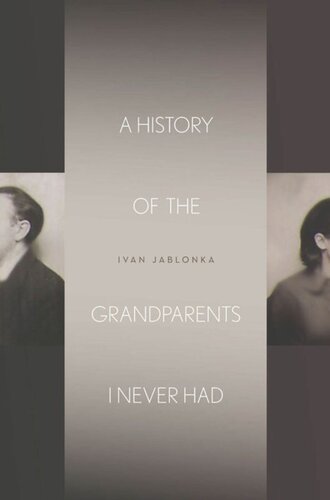

Most ebook files are in PDF format, so you can easily read them using various software such as Foxit Reader or directly on the Google Chrome browser.
Some ebook files are released by publishers in other formats such as .awz, .mobi, .epub, .fb2, etc. You may need to install specific software to read these formats on mobile/PC, such as Calibre.
Please read the tutorial at this link: https://ebookbell.com/faq
We offer FREE conversion to the popular formats you request; however, this may take some time. Therefore, right after payment, please email us, and we will try to provide the service as quickly as possible.
For some exceptional file formats or broken links (if any), please refrain from opening any disputes. Instead, email us first, and we will try to assist within a maximum of 6 hours.
EbookBell Team

0.0
0 reviewsIvan Jablonka's grandparents' lives ended long before his began: although Matès and Idesa Jablonka were his family, they were perfect strangers. When he set out to uncover their story, Jablonka had little to work with. Neither of them was the least bit famous, and they left little behind except their two orphaned children, a handful of letters, and a passport. Persecuted as communists in Poland, as refugees in France, and then as Jews under the Vichy regime, Matès and Idesa lived their short lives underground. They were overcome by the tragedies of the twentieth century: Stalinism, the mounting dangers in Europe during the 1930s, the Second World War, and the destruction of European Jews.
Jablonka's challenge was, as a historian, to rigorously distance himself and yet, as family, to invest himself completely in their story. Imagined oppositions collapsed—between scholarly research and personal commitment, between established facts and the passion of the one recording them, between history and the art of storytelling. To write this book, Jablonka traveled to three continents; met the handful of survivors of his grandparents' era, their descendants, and some of his far-flung cousins; and investigated twenty different archives. And in the process, he reflected on his own family and his responsibilities to his father, the orphaned son, and to his own children and the family wounds they all inherited.
A History of the Grandparents I Never Had cannot bring Matès and Idesa to life, but Jablonka succeeds in bringing them, as he soberly puts it, to light. The result is a gripping story, a profound reflection, and an absolutely extraordinary history.